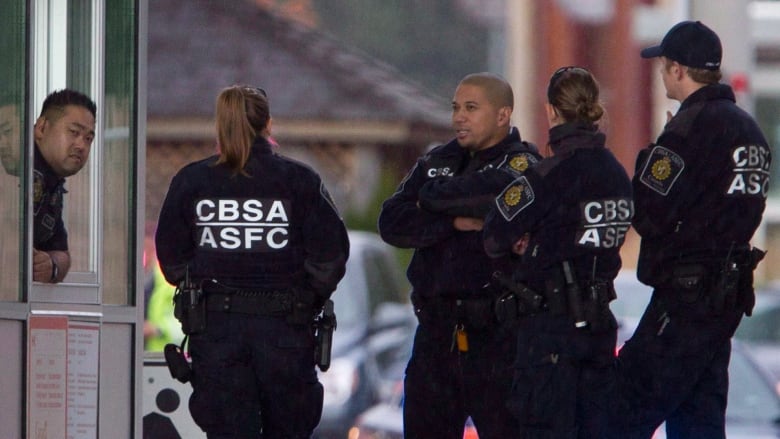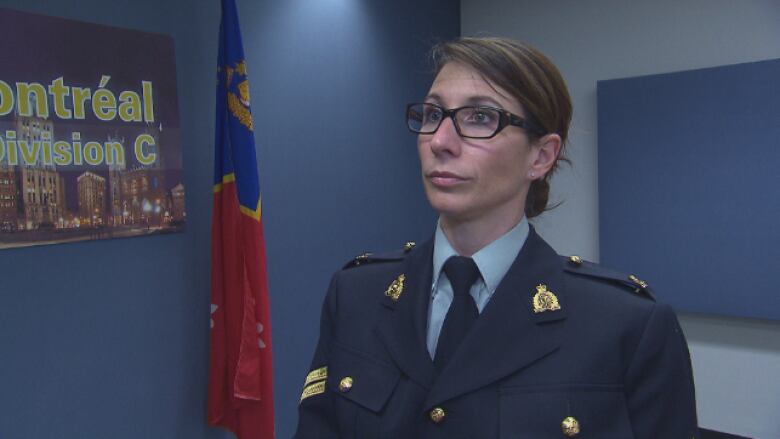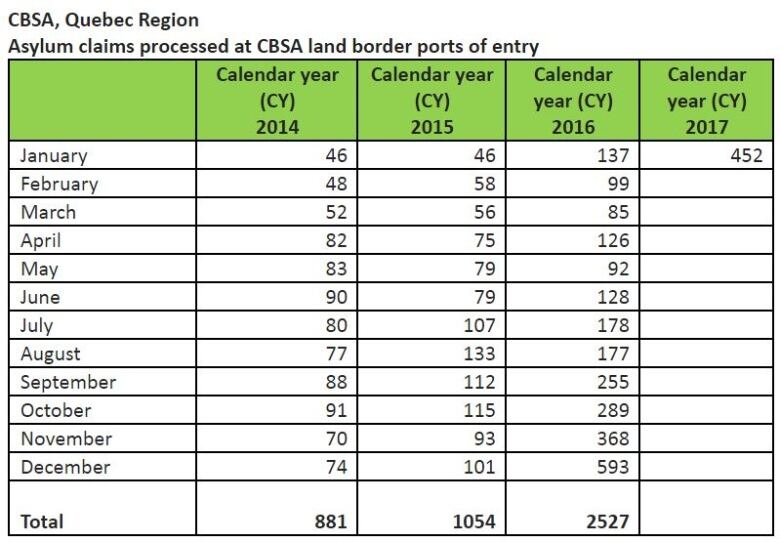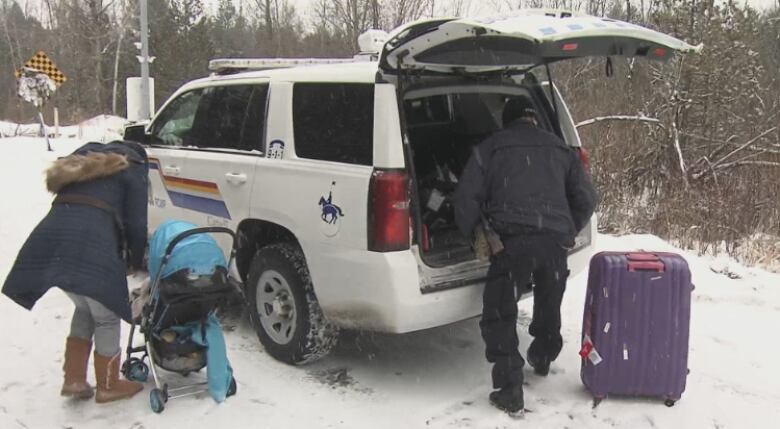Quebec sees biggest increase in illegal crossings from U.S., RCMP says
Proximity to New York City and Washington, help of people-smugglers partly blamed for increase

Quebec is dealing with Canada's largest increase in the number of asylum seekerscrossing illegally into the country from the U.S., law enforcement officials said Monday.
It is an increase that refugee lawyers are attributing to uncertainty over immigration policies in the U.S., whichhave become a hallmark of the young administration of President Donald Trump.
There were42 claims for asylum status filed last weekend alone at Quebecland borders, according to the Canada Border Services Agency.
In January, 452 people claimed asylum at Quebec border crossings a 230 per cent increase from January 2016.And that may represent only half of the total number of asylum seekers who entered last month, if other ports of entry are included.
EricTaillefer,vice-president of the Quebec Immigration Lawyers Association, estimatedas many as 1,000 files were opened in Januaryat the Refugee Protection Division of the Immigration and Refugee Board of Canada.

Though other Canadian borders with the U.S. have also seen a surge in illegal crossings, especially in Manitoba, the RCMP said Monday thatQuebec is the site of the most significant increase.
The reason so many people are crossing illegally in Quebecmay have to do with its proximity to major U.S. hubs like New York City and Washington, saidRCMP Cpl.CamilleHabel.
"But the difference now between theHemmingfordorLacolle[border]areas, is that on either side of the border there are big cities, or big airports," Habel said.
"Bigger cities on each side can mean more people trying to cross here."
Fear propelling illegal crossings
Overall, Quebec had2,527 asylum-seekers at its land borders last year, compared with1,054 a year earlier, with the bulk of the increase coming in the fall, RCMP said.
Propelling the flow from the U.S. to Quebec is a political climate south of the borderthat has left manyimmigrants concerned about their legal status, say immigration lawyers based in Montreal.

Trump campaigned on a promise to banMuslims from entering the country. Inlate January, he signed an executive order stating that anyone from seven majority-Muslim countries was banned from entering the U.S. for 90 days.
Thatbanwas latertemporarily blockedby a U.S. judge, but Trump has vowed to press ahead with the policy.
Taillefersaid many of the asylum seekers he's interacted with would not be affected by the travel ban. But the uncertainty is enough to push them to try crossing the border.
"I mean nothing has happened to directly impact most of the people who are crossing, but the fear that something could happen is playing a role," he said.
Julie Lessard, a specialist in business immigration law, said the climate in the U.S. has created a senseof insecurity in some people, despite the ban being temporarily blocked.
"People are just trying to get better lives, so if the ban comes back in another form and because of the insecurity that it all created well definitely, there was an increase in the last couple of weeks of the number of people trying to cross the border,"Lessard said.
"I don't see it ending at this point in time."

The appeal of crossing illegally, instead of at an official border crossing, is that it allows asylum seekers to take advantage of a loophole in the Safe Third Country Agreement.
The agreement was created so that refugee status can only be claimed in the first safe country someone arrives in. Under the agreement, which was designed to prevent so-called "asylum-shopping,"the U.S. is considered a safe country.
But the agreementonly holds at official border crossings, so people crossing illegally into Canada are able to apply for asylum here,even they arrived in the U.S. first.
People smuggling on rise too
Cashing in on the desire of asylum seekers to leave the U.S. are people-smugglers, whocharge between a few hundred and a few thousand dollars to help people cross the border.
According toTaillefer, the amount charged may depend on whether fake documents are provided, and the number of people in a family.
He said the phenomenon is new enough for Canadian border crossings that it's hard to tell what amount is being charged and why.
"There's no comparative criteria, because it's all done illegally. But the bigger the family is, the more the need for fake documents," he said.
TheRCMP, for its part,is worried about just how careless these smugglers are in the cold of winter.TheRCMPis currently holding a two-day symposium in Montreal on border security.
Quebec still hasn't seen a case of frostbite as severe as therefugee who lost fingersafter a seven-hour trek across the border to Manitoba in January.
ButHabelsaid that there have been asylum seekers who weren't equipped for the cold and needed medical attention when theRCMPpicked them up.
"Taking care of clients is not something that smugglers will do,"Habelsaid.
She saidRCMPinvestigators are gathering intelligence with Americans on what they call "long-term issues" like people smuggling.
Clarifications
- An earlier version of this story cited Eric Taillefer, vice-president of the Quebec Immigration Lawyers Association, saying as many as 1,000 asylum claims were opened in Quebec in January. CBSA later said that figure likely includes claims made at all of Quebecs ports of entry, not just the land border with the U.S.Feb 14, 2017 2:21 PM ET
With files from Ainslie MacLellan and CBC Montreal's Daybreak












_(720p).jpg)


 OFFICIAL HD MUSIC VIDEO.jpg)
.jpg)



























































































